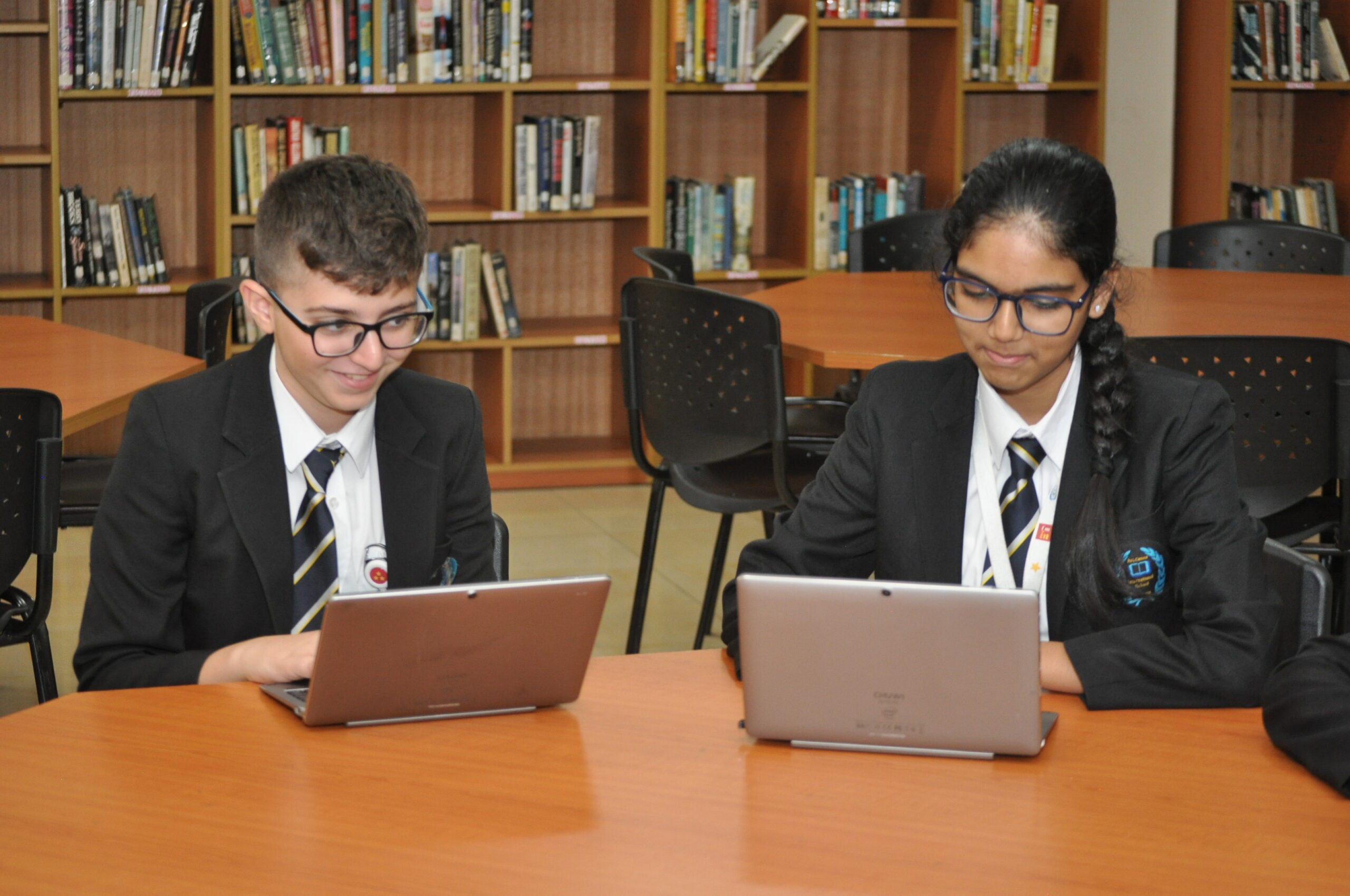At Avi-Cenna Secondary School we value all students for who they are and for what they can become.
We aim to provide a rigorous and effective education in an enabling environment, and one which inculcates in students a desire to learn, contribute, while feeling safe and confident.
CURRICULUM
YEARS 7 – 9 (KEY STAGE 3)
This Key Stage covers Years 7, 8 and 9 – the first three years of secondary education at Avi-Cenna International School. All subjects at this Key Stage are compulsory, and students will all take:
English (Language and Literature), Mathematics, Science, French or Arabic, Geography, History, Information and Communication Technology, Music, Personal, Social Health and Citizenship Education, Physical Education, Art and Design
All subjects are taught following the guidelines of the National Curriculum for England and Wales, and at the end of Year 9 students will all sit the Key Stage 3 National Curriculum Test (Checkpoint). This allows each individual student to measure themselves against students in England and Wales, and in British International Schools all over the world, but more importantly allows us, as a school, to benchmark ourselves and the levels our students achieve, against these schools.
YEARS 10 – 11 (KEY STAGE 4 – CAMBRIDGE INTERNATIONAL GENERAL CERTIFICATE OF EDUCATION – IGCSE)
In Years 10 and 11, Key Stage 4, Avi-Cenna International School offers the Cambridge IGCSE, the world’s most popular international curriculum for 14 – 16 year olds. Cambridge IGCSE is an international curriculum that develops students’ skills in creative thinking, enquiry and problem solving, and gives them excellent preparation for the next stage in their education.
Schools worldwide have helped develop Cambridge IGCSE. It incorporates the best in international education for students at this level. It develops in line with changing needs, and is regularly updated and extended. Cambridge IGCSE teachers can draw on excellent resources, training and advice from subject experts. Cambridge IGCSE has wide recognition from higher education institutions and employers around the world as evidence of academic ability.
Some subjects are compulsory, while students elect to take some as ‘options’. Students generally take 8 subjects, and all students sit the IGCSE examinations in all subjects they are taking. Examinations are set and conducted by the Cambridge International Exams syndicate in England, and papers are all marked externally. The results of these examinations are graded, from A* – G.




